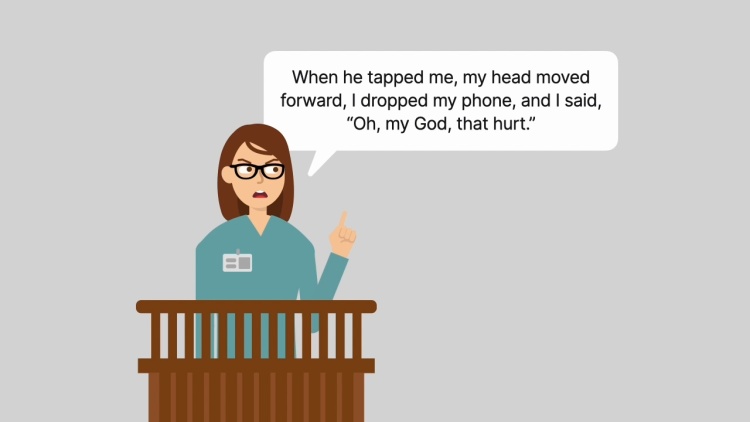Wulf v. Kunnath
Nebraska Supreme Court
827 N.W.2d 248 (2013)
- Written by Jamie Milne, JD
Facts
Nurse Susan Wulf (plaintiff) and doctor Sharad Kunnath (defendant) worked in a medical office in which the employees enjoyed close-knit, family-style relationships with each other. One day, several employees, including Wulf and Kunnath, engaged in banter over lunch. In response to some teasing from Wulf, Kunnath tapped Wulf on the back of the neck or head, telling her not to tease him. Kunnath and others in the room described it as a playful thump, the kind common between friends while joking with each other. The colleagues continued their banter for several more minutes before returning to work. There was conflicting testimony as to whether Wulf expressed any pain at the time of the event. Later that day, however, Wulf went to an emergency room complaining of nausea, pain in her neck and arm, and lightheadedness. Wulf filed a tort suit against Kunnath for battery, claiming that his swat constituted an unwanted harmful or offensive contact. Kunnath countered that he was just joking around and that Wulf impliedly consented to the contact by not objecting to similar contact in the past. Wulf admitted to not objecting to prior playful thumps but argued that did not signify consent to such conduct. The trial-court jury held in Kunnath’s favor, and Wulf appealed to the Nebraska Supreme Court.
Rule of Law
Issue
Holding and Reasoning (Cassel, J.)
What to do next…
Here's why 899,000 law students have relied on our case briefs:
- Written by law professors and practitioners, not other law students. 47,000 briefs, keyed to 994 casebooks. Top-notch customer support.
- The right amount of information, includes the facts, issues, rule of law, holding and reasoning, and any concurrences and dissents.
- Access in your classes, works on your mobile and tablet. Massive library of related video lessons and high quality multiple-choice questions.
- Easy to use, uniform format for every case brief. Written in plain English, not in legalese. Our briefs summarize and simplify; they don’t just repeat the court’s language.






